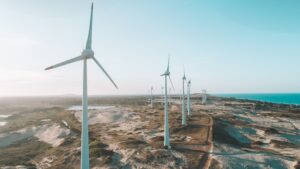Alberta 
Chris Varcoe: What happens when energy prices get too high, even for producers and an oil-rich province?
Surging prices and demand destruction — those words are now confronting the global oil industry in a way that hasn’t been seen in years. It sparks an uncomfortable question: At what point are prices simply too high, even for petroleum producers or a resource-rich province like Alberta, causing inflation to heat up, the global economy to cool down and consumers to get squeezed? “High oil prices really aren’t great for anybody. In energy-producing regions, there’s a lot of interest and excitement about prices when oil pushes past $80,” said Kevin Birn, vice-president at energy consultancy IHS Markit. “But the longer-term consequences are also not good, even for the producers”. Source: Edmonton Journal
Electricity Prices for Alberta
The Alberta power pool price averaged 10.522 cents per kWh in February 2022. This price is 1.441 cents higher than last month’s average. The pool price has averaged 9.997 cents per kWh over the last 12 months.
As of February 28, 2022, the forward market was predicting electricity prices for the calendar years of 2022, 2023, 2024, 2025, 2026, and 2027. These prices are 8.900, 7.400, 6.000, 5.800, 5.800, and 5.800 cents per kWh respectively.
Gas Prices for Alberta
Direct Energy’s gas rate for February 2022 was $4.842 per GJ in Alberta. The March 2022 rate has been set at $4.758 per GJ. Alberta gas prices have averaged $3.908 per GJ over the last 12 months.
As of March 1, 2022, the forward market was predicting gas prices for the calendar years of 2022, 2023, 2024, 2025, 2026, and 2027. These prices are 4.35, 3.52, 3.17, 3.31, 3.42, and 3.47 cents per GJ respectively.
British Columbia 
B.C.’s latest tax incentive for zero-emission vehicles welcomed, despite low inventory
 British Columbia has added another incentive for people to make the switch from vehicles running on fossil fuels to those that use electricity or hydrogen — but current supply issues might make it difficult for buyers to take advantage. On Tuesday, the province announced several new tax measures to meet the goals of its CleanBC climate action plan, which requires that 26 per cent of all new passenger vehicles sold in the province be zero-emission vehicles (ZEVs) by 2026, scaling up to 90 per cent by 2030 and 100 per cent by 2035. The measures include an exemption from paying provincial sales tax (PST) on used ZEVs, effective Wednesday, and raising the passenger vehicle surtax threshold for ZEVs from $55,000 to $75,000. To qualify for the PST exemption, vehicles must have been driven at least 6,000 kilometres. Source: CBC News
British Columbia has added another incentive for people to make the switch from vehicles running on fossil fuels to those that use electricity or hydrogen — but current supply issues might make it difficult for buyers to take advantage. On Tuesday, the province announced several new tax measures to meet the goals of its CleanBC climate action plan, which requires that 26 per cent of all new passenger vehicles sold in the province be zero-emission vehicles (ZEVs) by 2026, scaling up to 90 per cent by 2030 and 100 per cent by 2035. The measures include an exemption from paying provincial sales tax (PST) on used ZEVs, effective Wednesday, and raising the passenger vehicle surtax threshold for ZEVs from $55,000 to $75,000. To qualify for the PST exemption, vehicles must have been driven at least 6,000 kilometres. Source: CBC News
Ontario 
Ford government eyes ‘green steel’ as way to catch up on cutting carbon emissions
 Ontario’s steel industry is aiming for a dramatic reduction in its greenhouse gas emissions, a move that will help Premier Doug Ford’s government get closer to achieving its climate-change targets. The three biggest industrial emitters of CO2 in Ontario are all steel plants. Steel production alone accounts for more than 40 per cent of all industrial greenhouse gas (GHG) emissions in the province, more than the refinery, forestry, mining and chemical sectors combined. But a push is now on — funded in part by nearly $2 billion from provincial and federal taxpayers — to convert Ontario’s steel plants to using lower-carbon sources of energy. The expected reductions in CO2 emissions stand to make this the Ford government’s single biggest initiative on climate change. The latest step toward what’s being dubbed “green steel” is Ford’s announcement of a $500 million provincial government contribution to ArcelorMittal Dofasco in Hamilton, the biggest producer of flat-rolled steel in the country and the single biggest industrial source of CO2 emissions in Ontario. The plan is to convert Dofasco’s coal-fired blast furnaces to electric-powered systems by 2028. Source: CBC News
Ontario’s steel industry is aiming for a dramatic reduction in its greenhouse gas emissions, a move that will help Premier Doug Ford’s government get closer to achieving its climate-change targets. The three biggest industrial emitters of CO2 in Ontario are all steel plants. Steel production alone accounts for more than 40 per cent of all industrial greenhouse gas (GHG) emissions in the province, more than the refinery, forestry, mining and chemical sectors combined. But a push is now on — funded in part by nearly $2 billion from provincial and federal taxpayers — to convert Ontario’s steel plants to using lower-carbon sources of energy. The expected reductions in CO2 emissions stand to make this the Ford government’s single biggest initiative on climate change. The latest step toward what’s being dubbed “green steel” is Ford’s announcement of a $500 million provincial government contribution to ArcelorMittal Dofasco in Hamilton, the biggest producer of flat-rolled steel in the country and the single biggest industrial source of CO2 emissions in Ontario. The plan is to convert Dofasco’s coal-fired blast furnaces to electric-powered systems by 2028. Source: CBC News
Electricity Prices for Ontario
The Hourly Ontario Energy Price (HOEP) was an average of 3.943 cents per kWh in February 2022. This price is 0.324 cents lower than last month’s 4.267 cents per kWh. The twelve month moving average was 2.950 cents per kWh up to January 2022.
The Actual Rate for the Global Adjustment rate Class B for January 2022 was set at 4.353 cents per kWh. The Global Adjustment is an additional charge paid by non-regulated customers. (Source: IESO)
Saskatchewan 
Russian oligarchs should sell Evraz shares so company avoids sanctions: Regina mayor
Regina Mayor Sandra Masters says the simplest way to prevent sanctions against Evraz, a steel company partially owned by Russian oligarchs that is also one of the city’s largest employers, would be for the oligarchs to sell their shares in the company. “To me that is actually the way out of this in terms of the balance between needing to support Ukraine and accepting those sanctions and protecting the employment and the … livelihood of those workers,” Masters said in an interview this weekend on CBC’s The House. Evraz employs about 1,700 people at a Regina facility that produces carbon steel slabs and pipe used in oil and gas pipelines. Russian oligarch Roman Abramovich holds 28.6 percent of Evraz shares, making him the largest stakeholder, while three other oligarchs also have shares. According to the U.S. Treasury Department, Abramovich has direct ties to Putin. Source: CBC News
Manitoba 
How rethinking habits can save you money at the store and the pumps
With the costs of utilities, food and gas all rising at once, you might be looking for ways to save money. Good news: experts and consumers who have made changes in their own lives say there are plenty of ways you can save a few bucks on your bills, at the cash register and at the pump. One of the easiest ways to save is something you can do without leaving home: cutting back on what you spend on utilities. When it comes to water, turning off the tap while you brush your teeth and swapping a long shower for a shorter one or a partially filled bath are good first steps, says Colleen Ans, co-ordinator of the Green Action Centre’s Living Green, Living Well program. You can also save your grey water — water already used for things like washing hands or dishes — and repurpose it to flush your toilet or water plants. As for electricity and natural gas, sealing up and weather stripping your home so warm air can’t escape through doors and windows can help a lot, says Tracy Sterdan, a spokesperson for Efficiency Manitoba. Turning off lights you’re not using can help too, while turning your thermostat down three to four degrees when you’re asleep or away from home can help you save up to four per cent on your bill. Source: CBC News
New Brunswick 
Auditor general reproaches N.B. Power for financial barriers to energy efficiency
New Brunswick’s auditor general says N.B. Power needs to do more to address barriers for low- and middle-income New Brunswickers who don’t have the money up front for energy efficiency upgrades. “Moderate-income households may have difficulty accessing NB Power’s energy efficiency programs, due to lack of financing mechanisms,” Paul Martin says in a report tabled at the legislature. It faults the Department of Natural Resources and Energy Development for not requiring N.B. Power to create a loan program when it folded energy efficiency programs into the utility in 2015. New Brunswick is one of only two provinces with no financing mechanism in its energy-efficiency programs. Residents must spend the money up front and then get a rebate for part of the amount. Martin said N.B. Power doesn’t need to be the organization providing the loans as long as they’re available somehow. Source: CBC News
Prince Edward Island 
Costs may be passed down to shoppers if fuel prices remain high: Trucking association
 A trucking association says the industry is already feeling the impact of rising diesel costs — and so could consumers if the situation doesn’t end soon. Fuel prices have spiked the last few days all across Canada as crude oil continues to climb higher. The rising costs are having a ripple effect throughout the trucking industry, with truckers paying thousands of dollars to fill up their tanks. Jean-Marc Picard, executive director of the Atlantic Provinces Trucking Association, told CBC’s Island Morning on Tuesday the situation is “extremely tough to manage. Picard said the industry is already struggling with rising costs for equipment, insurance and labour costs. He said the fuel surcharge, which protects truckers against fluctuation in the gas price by distributing some of those added costs to customers, won’t do much to soften the blow for a lot of carriers. Source: CBC News
A trucking association says the industry is already feeling the impact of rising diesel costs — and so could consumers if the situation doesn’t end soon. Fuel prices have spiked the last few days all across Canada as crude oil continues to climb higher. The rising costs are having a ripple effect throughout the trucking industry, with truckers paying thousands of dollars to fill up their tanks. Jean-Marc Picard, executive director of the Atlantic Provinces Trucking Association, told CBC’s Island Morning on Tuesday the situation is “extremely tough to manage. Picard said the industry is already struggling with rising costs for equipment, insurance and labour costs. He said the fuel surcharge, which protects truckers against fluctuation in the gas price by distributing some of those added costs to customers, won’t do much to soften the blow for a lot of carriers. Source: CBC News
Québec 
More Quebecers ditch driving as gas prices soar
Since the price of gasoline reached record highs in Canada, more Quebecers are changing their driving habits or giving up on using their car altogether. With gas prices shooting up, resorting to public transit was a no-brainer for Ben Lawson. With the price of gas running at $1.95 per litre this week, filling up the tank of his Honda Civic would cost him about $400 per month — more than double the price of a monthly train pass, he says. Simon Rioux, president and founder of the Quebec Electric Vehicle Association, says these days getting your hands on an electric car is “pretty much impossible.” “Unfortunately, there are a lot of waiting lists right now,” he said. “All the cars that are being sent to dealerships right now are already pre-sold.” Interest in electric cars has doubled since last year, he says. Source: CBC News
Newfoundland and Labrador 
As fuel prices soar, EV advocates say now’s the time to consider electric
As costs for transportation fuel continue to rise, owners of electric vehicles (EVs) say now is the time to consider ditching gas-powered vehicles for good. On Friday, the province’s Public Utilities Board posted record-high prices for gasoline and diesel, among other fuels. Currently, the price-per-litre for regular unleaded self-serve is above $1.90 across the island In Ramea, Churchill Falls and Change Islands, that price topped $2. One EV owner says fuel costs are at least one fifth that of a gas-powered vehicle. David Brake of St. John’s said the reasons he swears by his fully-electric Hyundai Ioniq 5 are less maintenance (EV motors have far fewer moving parts), and more peace-of-mind. “I don’t need to worry about potentially ballooning maintenance costs,” he said. “So that’s been a big benefit for me.” Brake said the fear of the unknown kept him from going electric for a long time, but with more and more EVs on the road, that’s less of an issue now. Source: CBC News
Nova Scotia 
High gas prices hitting Atlantic Canada hard due to region’s reliance on heating oil
 People across Canada are feeling the financial pressure of surging gasoline prices, but residents of the Atlantic region are being particularly hard hit, in part, because of their heavy reliance on oil to heat their homes. The four provinces with the highest percentages of fuel oil for residential heating in 2019 were all in Atlantic Canada, according to data from Nova Scotia’s Finance and Treasury Board. Fuel oil composed roughly four per cent of residential heating energy in 2019 across Canada, but that number jumped to almost 50 per cent in Prince Edward Island. About 36 per cent of residential heating energy in Nova Scotia was from fuel oil in 2019, while it was 22 per cent in Newfoundland and Labrador, and seven per cent in New Brunswick. University of New Brunswick economics professor Constantine Passaris said he’s concerned Atlantic Canadian energy consumers will have a difficult time adjusting to the high prices, which have risen sharply since the start of Russia’s invasion of Ukraine two weeks ago. Source: CBC News
People across Canada are feeling the financial pressure of surging gasoline prices, but residents of the Atlantic region are being particularly hard hit, in part, because of their heavy reliance on oil to heat their homes. The four provinces with the highest percentages of fuel oil for residential heating in 2019 were all in Atlantic Canada, according to data from Nova Scotia’s Finance and Treasury Board. Fuel oil composed roughly four per cent of residential heating energy in 2019 across Canada, but that number jumped to almost 50 per cent in Prince Edward Island. About 36 per cent of residential heating energy in Nova Scotia was from fuel oil in 2019, while it was 22 per cent in Newfoundland and Labrador, and seven per cent in New Brunswick. University of New Brunswick economics professor Constantine Passaris said he’s concerned Atlantic Canadian energy consumers will have a difficult time adjusting to the high prices, which have risen sharply since the start of Russia’s invasion of Ukraine two weeks ago. Source: CBC News
Nunavut 
Warming oceans are threatening the Inuit way of life
In January, NASA and the National Oceanic and Atmospheric Administration (NOAA) released their annual report on the state of the world’s climate. While 2021 didn’t top the list of the planet’s hottest years on record (it was the fourth-hottest), it was in fact the warmest year for our oceans. As with most aspects of climate change, the people who are seeing that warming the most are in the Arctic. “Over the last 25 years, the species that typically thrive here, the numbers are going down,” said Hilu Tagoona, a Nunavut resident and a senior Arctic adviser for Oceans North, a charitable organization that supports marine conservation together with Indigenous and coastal communities. According to a report by the Canadian government entitled Canada’s Oceans Now, 2020, all of Canada’s oceans are warming by about 1 C per century. However, some parts of the Arctic Ocean have warmed as much as 1 C per decade over the past 20 years. Tagoona said the traditional Inuit way of life is already being threatened. Source: CBC News
Northwest Territories 
Wind turbine expected to reduce Inuvik electricity bills, emissions by early 2023
 Construction to pave the way for a wind turbine began in Inuvik, N.W.T., last month. The turbine is expected to be up and running early next year, and once it is — it will make a “big difference” in the region, said N.W.T. MP Michael McLeod. During a media conference on Wednesday, officials announced that construction on an access road began in January. The wind turbine is expected to save the Northwest Territories Power Corporation (NTPC) from buying 3 million litres of fuel per year, which will translate to cost savings for Inuvik residents. The community currently consumes the most diesel for electricity generation of anywhere in the territory. Source: CBC News
Construction to pave the way for a wind turbine began in Inuvik, N.W.T., last month. The turbine is expected to be up and running early next year, and once it is — it will make a “big difference” in the region, said N.W.T. MP Michael McLeod. During a media conference on Wednesday, officials announced that construction on an access road began in January. The wind turbine is expected to save the Northwest Territories Power Corporation (NTPC) from buying 3 million litres of fuel per year, which will translate to cost savings for Inuvik residents. The community currently consumes the most diesel for electricity generation of anywhere in the territory. Source: CBC News
Yukon 
Yukon Energy signs 40-year agreement to buy hydro power from Indigenous-owned energy corp in B.C.
Yukon Energy has entered into an agreement with Atlin, B.C.’s Tlingit Homeland Energy Limited Partnership to buy renewable energy from its proposed $206-million hydro expansion project for 40 years beginning in late 2024. “It’s a pretty significant deal for us,” said Andrew Hall, president and CEO of Yukon Energy. “[It] gives us certainty around the details of how we would purchase the power, what price we pay.” He said Yukon Energy will pay less or the same amount it would otherwise pay for electricity generated using liquefied natural gas and diesel. The deal is subject to several conditions. Over the course of the next six months, the Yukon Utilities Board will review the agreement and submit a report to the Yukon government on or before July 19, 2022, saying whether or not it thinks it’s a good deal for ratepayers. At the same time, Yukon Energy and Tlingit Homeland Energy, which is owned by the Taku River Tlingit First Nation, will work together to secure $150 million in federal funding that’s required for the proposed hydro electric expansion to take place. Hall said the Yukon government committed to funding a portion of the project. Source: CBC News